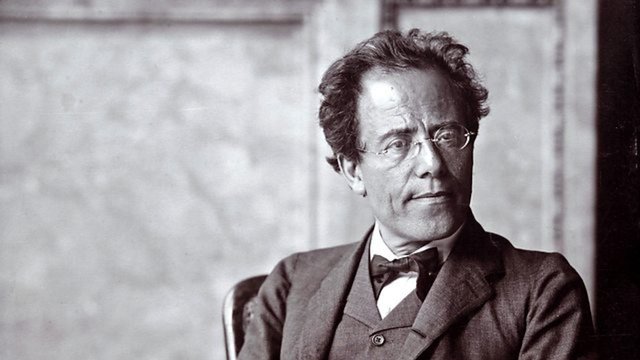[CLASSICAL MUSIC] May I please lend your ear for fifty-five minutes?
For you who have never heard a Mahler symphony in your life, I invite you to start here and now, with his light and playful Fourth Symphony. Maybe you've heard snippets of his music in movies (the Adagietto from the Fifth Symphony is frequently used in movies), but never really dared to take on these monumental, heavy and seemingly daunting works. Many have been initiated to Gustav Mahler's music through his Fourth Symphony, his shortest, most heartfelt, and with its four movements also his most classical. Something that testifies to its popularity is that the symphony has been recorded no less than 180 times.

Mahler's Fourth is instant music, it resembles a rococo miniature and lacks both the demonstrative excess and the ostentatious defiance of conventions that characterize his other ten symphonies. The Fourth Symphony is lovable, charming, accessible, and sometimes enchanting, almost as if it came from Mozart's Magic Flute, with plenty of caricature and humor in the music. And like The Magic Flute, it is an initiation piece, but not in goodness and love between people, but in the dream of a happy life after death, a frolic play on the Heavenly meadows.
Mahler's Fourth Symphony, composed between 1899 and 1901, is built around a single song "Das himmlische Leben." The melody is foreshadowed here and there during the first three movements, and is sung in its entirety by a soprano in the fourth and last movement. The symphony is dominated by the fantasy of a playful Heavenly Kingdom where everything is easy, abundant, playful and naive. Perhaps it's a starving child's last fleeting hallucinations. In an early note on the score Mahler instructs that the finale should be sung ”childishly and cheerfully; without parody!” The simple and natural had by no means an obvious place in Mahler's contemporary Viennese culture, dominated by coquettish and artificial operettas which did not include real seriousness or genuine playfulness. Not surprisingly, Mahler's Fourth received a very chilly reception from both critics and audiences.

We enjoy heavenly pleasures
and therefore avoid the earthly stuff.
No worldly tumult
is to be heard in heaven.
All live in greatest peace.
We lead angelic lives,
yet have a merry time of it besides.
We dance and we spring,
We skip and we sing.
Saint Peter in heaven looks on.
Good greens of every sort
grow in the heavenly vegetable patch,
good asparagus, string beans,
and whatever we want.
Whole dishfuls are set for us!
Good apples, good pears and good grapes,
and gardeners who allow everything!
If you want roebuck or hare,
on the public streets
they come running right up.
Should a fast day come along
all the fishes at once come swimming with joy.
There goes Saint Peter running
with his net and his bait
to the heavenly pond.
Saint Martha must be the cook.
The first movement is light and elegant and you can hear both sleigh bells and birdsong, before the seductive and familiar theme is presented by the violin. The second movement has a quite stirring moment when the concertmaster illustrates a sole fiddle player. For this, the concertmaster is supposed to use a second violin that is tuned a whole step up and therefore sounds a little lighter and more folky, as a medieval fiddle or vielle would have sounded. According to letters from Alma Mahler, the composers wife, the movement was inspired by Arnold Böcklin's self-portrait, where Death plays violin into the ear of the artist. Not all sunny and light, and not without gravitas and depth, after all then.
The third movement is the longest of the four. The beautiful melody, a breathtakingly delightful cantilla, grows slowly over time, and a bit into the movement the first culmination gradually transforms into crystalline lightness and cantabile, only to build up to a new culmination, which again settles down to leave space for a final explosion, where the sky opens and you both see and hear the light before the song takes over in the last movement.
I leave you with a recording by recently departed Latvian-Russian Maestro Mariss Jansons (may he frolicly dance in the Heavenly meadows) and his Bavarian Radio Symphony Orchestra, in the hopes that I have turned you into a newly inaugurated Mahlerian.
This post was shared in the Curation Collective Discord community for curators, and upvoted and resteemed by the @c-squared community account after manual review.
@c-squared runs a community witness. Please consider using one of your witness votes on us here